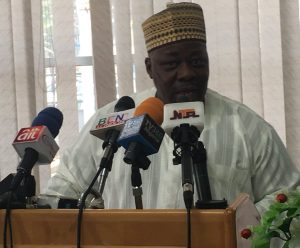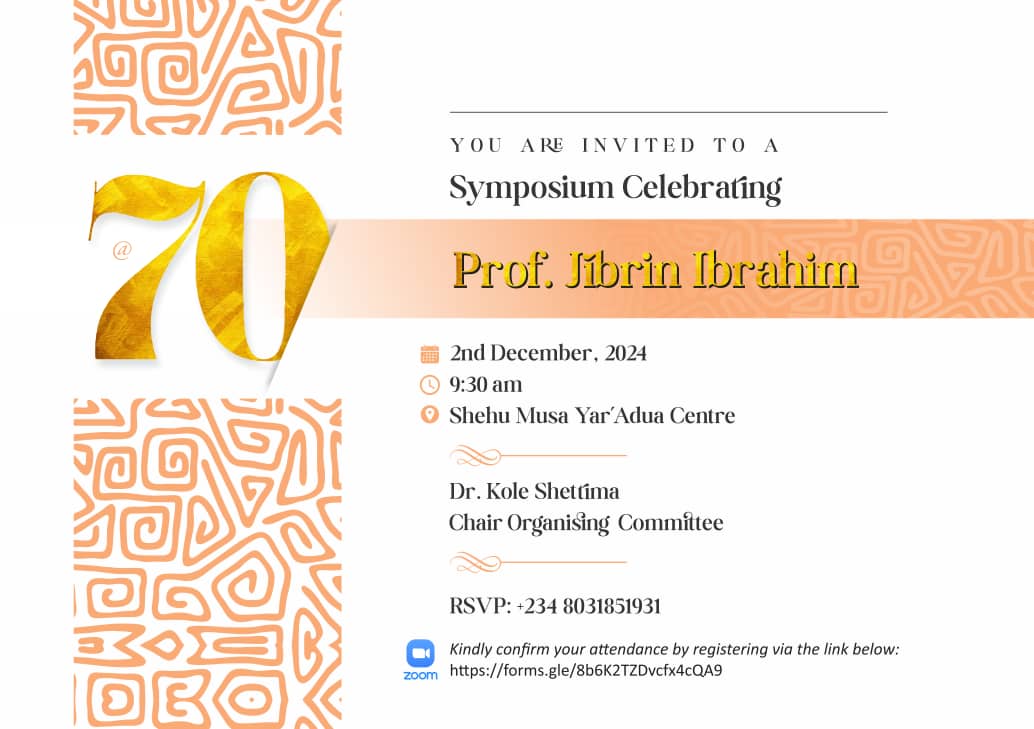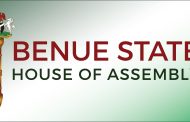It is an event with all the potentials of exploding into a carnival and, in a totally unplanned manner, transform from politics into something political in the Carl Schmitt sense of the political. What more is required than the diversity of potential attendees cutting across pillars of the establishment as well as academics, (past) students, readers of his column, elements from the civil society, workers and sundry solidarisers.
Of course, Intervention cannot vouch for any such carnival now but only because “we” have so successfully internalised the tendency to bow and tremble before “our” own powers. To make ourselves sound great at that escapism, “we” have a pack of words we readily invoke: spontaneity, anarchism or rowdiness or some other words like that. It is not because these words have any ultimate meaning. It is because ‘we’ in this part of the world have been brought up as good children of logocentrism. As such, the words in opposition to the ones we are in agreement with must be the inferior ones and from which ‘we’ must deliver it’s believers into The Garden of Eden purity. This is where the argument that new movements is not what is really dividing the Left but Left’s lack of capacity to transform itself in tune with the appetite of the new masses.
But there’s no escaping the political when you put a Jibrin Ibrahim on the epistemic weighing machine at his 70th birthday anniversary. In Carl Schmitt’s essay “On the Concept of the Political” a classic of political theory (there’s no such a thing as a universal classic), the political is the relationship between the friend and the enemy just as it is the relationship between beauty and ugly in aesthetics; profit and loss in business and so on.

‘History as iconoclast’
Like almost all who found themselves under colonial conquest, Prof Ibrahim grew up as a combatant. The first site of combat was instrumental Marxism. From there at some point, he made a shift to liberal democratic theory. One could see that he still didn’t find that adequate. He remained there but looked in the direction of (African) literature, giving it a higher score for more sensitive capture of the trend that was developing across post- independence Africa. He was, by implication, critiquing his previous ideological homesteads although one cannot say literature is an ideological field.
What is observable is that while Prof Ibrahim might have scaled down in terms of activist reasoning and praxis, the real legacy is his unending search for where the delivery formula might be hiding. A galaxy of persons with good, practical knowledge of ‘Jibogram’, his nickname when he started unfolding, have been slated to unpack him a few hours from now on December 2nd, 2024. No one will be surprised if there’s a consensus among the speakers that the African literary space is where he has settled after encountering epistemic cull de sac in every sphere of modernism. This has to be so because, notwithstanding the emancipatory halo of Marxism, it drinks from the same epistemological stream as liberalism. Marxism has been so badly imported into Nigeria that its epistemic logic is not worrisome to most adherents, a very shocking reality.
But, in the first quarter of the 21st century, everyone with a claim to the heritage of the Left must worry about all such details. The frightening degree of fragmentation at the global level occurs at a time of intense great power competition for primacy. The dominant social order – global capitalism – is no less in disarray, with capitalism desperately seeking hideouts like refuges. Democracy is not shielded from the polycrisis. It in a worse disarray, so much so that Anthony Giddens, for example, thinks that the challenge of the moment is the struggle to democratise democracy. That says a lot.
In this hale of fragmentation and uncertainty, the weakest elements in the society must protect themselves by acting political in proclaiming their symbols, those who have got a debating advantage or the power of voice to fall back on when the push comes to a shove. There should thus be no shyness in proclaiming such elements whenever and wherever one has been found with that capacity to be that symbol for the herd. That’s why there would have been nothing odd about some women, some students, some workers and some political choir doing some symbolic stunts at the 70th birthday anniversary of Jibogram. Absolutely nothing wrong!
Flashing such signals at this time of dangerous, multiple endgames in Nigeria nobody can decode would have been a contextual and admirable page from Leninism domesticated to serve a purpose. The alternative is what Intervention compares to the current suicidal silence of the legatees of the patriotic project in Nigeria. But that is no longer a viable alternative. Not if we take note of the warning the late Ibrahim Tahir issued Nigeria as early as 1999, a warning nobody bothered about thereafter even though the warning was issued to the right persons at the right place.
Dr. Ibrahim Tahir put it to elected political office holders of the then ruling party – the People’s Democratic Party (PDP) – at a National Democratic Institute (NDI) seminar in 1999 that Nigeria was already facing a crisis of shortage of knowledge of the fundamentals regarding nationhood, the state itself, the constitution and popular comprehension of these variables. He put the said shortage of knowledge as the background of a larger crisis of incompetence and disingenuousness in statecraft.
Is not what he foresaw what we are experiencing at every level of government in Nigeria today? What then are the legatees doing if this is the real crisis unfolding? Is it when the siege crosses the boundary or what?
As it now, no symbolic political signals will likely feature in Prof Jibrin Ibrahim’s 70th birthday anniversary. It has obviously not been planned that way. But it can happen in the next 70th anniversary of any other members of legatee who also has the soul of personality, the epistemic weight and experience of here and there on the same scale or near same scale of ‘Jibogram’. It would be such a tragedy for a collectivity of the legatees of the Left tradition to willfully delete itself from the political for no better reasons than the hegemonic articulation of a class of professional politicians as those from whom political leadership must come even when that bracket is suffering from Ibrahim Tahir’s diagnosis and offering nothing other than a history of bungling. Haba!




























